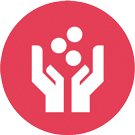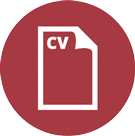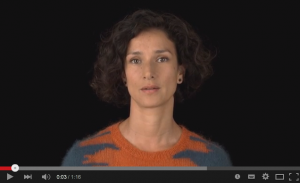
June 2015
Ariadne’s Thread is a monthly update of events, briefings and research for social change and human rights funders.
Ariadne News & Events
 WORKSHOP ON THE DISABLING ENVIRONMENT FOR CIVIL SOCIETY: Ariadne, the International Human Rights Funders Group and the European Foundation Centre are jointly organising a two day Funders’ Workshop on the Disabling Environment for Civil Society on 11-12th June 2015 in Berlin. The artwork featured here has been developed as a community resource for any funder or NGO aligned with Ariadne’s aims and working on the theme of the closing space for civil society. Please email lori.stanciu@ariadne-network.eu if you would like to use the logo. Participants attending the workshop in Berlin are reminded to please read the key briefing note in advance.
WORKSHOP ON THE DISABLING ENVIRONMENT FOR CIVIL SOCIETY: Ariadne, the International Human Rights Funders Group and the European Foundation Centre are jointly organising a two day Funders’ Workshop on the Disabling Environment for Civil Society on 11-12th June 2015 in Berlin. The artwork featured here has been developed as a community resource for any funder or NGO aligned with Ariadne’s aims and working on the theme of the closing space for civil society. Please email lori.stanciu@ariadne-network.eu if you would like to use the logo. Participants attending the workshop in Berlin are reminded to please read the key briefing note in advance.
REGISTER: ARIADNE UK GRANT SKILLS-DAY: Ariadne UK will hold its annual Grant-Skills Day and Networking Dinner on September 23rd 2015. We invite all Ariadne participants to come to either or both events. This year’s Grant-Skills Day will focus on ‘The Digital Dividend for Social Change and Human Rights Funders’. The speed and scope of social change brought about by digital and mobile technology is becoming a daily reality; technology is redefining the way grant-makers work, communicate and engage with grantees, communities, civil society organisations, governments, and other funders. This day will give grant-makers an understanding of how these technological developments are re-shaping the philanthropic sector. The event will be held at the Victorian-era London Museum of Water & Steam based in a 19th century pumping station. Register here.
SAVE THE DATE: ARIADNE TELE-BRIEFING ON PROMOTING CULTURAL DIVERSITY IN THE MEDIA: How successfully is the media responding to the challenges of cultural diversity in countries such as France, Belgium and Britain? What is best practices? What roles are played by funders and which projects work in this context? Compared with their British counterparts, the media in France have been slow to embrace the nation’s cultural diversity, though this is changing. This tele-briefing is aimed at exploring the challenges of media representations of cultural diversity. It will provide insight for funders on some current initiatives and explore the strategic role of funders. Please note the event will be held in French. 9th of July, 12:00- 13:00 CEST (11:00 – 12:00 BST).
LEARN HOW TO USE THE ARIADNE PORTAL: A one-hour tuition session on the Ariadne Portal will be conducted on two dates in June: ONLINE via Webinar — log in from anywhere on Monday, 15th of June at 15:00 BST (GMT+1), and in Person in LONDON on Monday, 22nd of June at 10:00 am BST. These sessions are for those wishing to have a tour and get comfortable using the portal, find out how to use the portal to enhance your work, brush-up on using the portal (need a refresh? you’re welcome to join!). The session is free of charge. To RSVP, please email kenneth.hill@ariadne-network.eu
ARIADNE ANNUAL REPORT AND MESSAGE FROM THE ADVISORY BOARD: Ariadne is now entering its 7th year, and is a community of 483 individuals from 184 organisations based in 25 countries. Ariadne’s overall membership grew by 24% over the past year with numbers increasing particularly in the UK, France and Eastern Europe; indeed, Ariadne Francophone has become an active community on the portal and Ariadne now offers tele-briefings for French-speaking funders. Ariadne is now hosting, co-hosting or supporting around 20 events a year in various European locations, and the Ariadne Policy Briefing gathered 90 participants in Budapest for 3 days. In 2015, Ariadne launched the first Forecast for human rights and social change funders; 90 funders across Europe contributed their expertise to identify the main trends that will shape our world in 2015, and this will become an annual exercise. These are just some of the facts and figures from our 2014 – 2015 annual report, which you can access in full via the portal.
LAST CHANCE: ADVANCING HUMAN RIGHTS – KNOWLEDGE TOOL FOR FUNDERS – CALL FOR GRANTS DATA: Ariadne, the International Human Rights Funders Group, the Foundation Center and the International Network of Women’s Funds have been collaborating on a unique multi-year effort to track and analyse the state of global human rights and social change funding. So far the details of over 90,000 grants in the fields of social change and human rights have been uploaded, contributing to a powerful tool that benefits the entire sector, enabling funders to see what areas are being supported by which of their peers, to map specific issues or areas, and to plan their own strategic interventions to complement existing funding. The detailed online map can be accessed via the password protected Ariadne portal, free of charge to all Ariadne members. The accuracy and reach of the project depends completely on the information that is provided for it. We are now compiling information for the next edition of this project and would like to invite grants data for 2013 and 2014. To find out more and request a template for submitting your data, please email lori.stanciu@ariadne-network.eu The deadline for submitting data is today, Tuesday the 9th of June 2015.
New Research, Articles and Judgements
 Why technology hasn’t delivered more democracy: Thomas Carothers, vice president for studies at the Carnegie Endowment for International Peace, has written for news magazine Foreign Policy on the question of why democracy is stagnating when new technologies offer important tools for empowerment. He refers to “the evolutionary changes… (which) imply a profound empowerment of individuals through exponentially greater access to information, tremendous ease of communication and data-sharing, and formidable tools for networking. Yet despite these changes, democracy — a political system based on the idea of the empowerment of individuals — has in these same years become stagnant in the world”. Six experts on political change have contributed to the article in order to try and reconcile these two contrasting realities, and they look at local change, autocrats’ use of technology, limits on technology, lessons from Iran, and what drives people; as one expert points out “Technology does not drive anything. It creates new possibilities for collecting and analyzing data, mashing ideas and reaching people, but people still need to be moved to engage and find practical pathways to act”. Read more here.
Why technology hasn’t delivered more democracy: Thomas Carothers, vice president for studies at the Carnegie Endowment for International Peace, has written for news magazine Foreign Policy on the question of why democracy is stagnating when new technologies offer important tools for empowerment. He refers to “the evolutionary changes… (which) imply a profound empowerment of individuals through exponentially greater access to information, tremendous ease of communication and data-sharing, and formidable tools for networking. Yet despite these changes, democracy — a political system based on the idea of the empowerment of individuals — has in these same years become stagnant in the world”. Six experts on political change have contributed to the article in order to try and reconcile these two contrasting realities, and they look at local change, autocrats’ use of technology, limits on technology, lessons from Iran, and what drives people; as one expert points out “Technology does not drive anything. It creates new possibilities for collecting and analyzing data, mashing ideas and reaching people, but people still need to be moved to engage and find practical pathways to act”. Read more here.
Wales introduces ‘Wellbeing of Future Generations’ legislation: In 2013 a report by the United Nations Secretary General, entitled Intergenerational Solidarity and the Needs of Future Generations, recommended the establishment of an office of the Commissioner of Future Generations. The role should link the needs of future generations to existing sustainable development goals and embed such thinking into existing treaties, declarations, resolutions and intergovernmental decisions. Wales has taken this idea a step further and introduced national legislation to embed long term governance into its existing decision making process, by recently enacting the Well-being of Future Generations (Wales) Act 2015. This issue was identified in Ariadne’s 2015 Forecast as an area likely to move centre-stage. Read more here.
Following the Queen’s Speech: don’t be lulled into a false sense of security: Neil Crowther, Director of the UK-based Thomas Paine Initiative (a pooled fund seeking to change public attitudes towards the concepts underlying human rights in the UK) has written an analysis of where the UK Human Rights Act (HRA) and a British Bill of Rights now stand, following the omission of the expected bill in the recent Queen’s Speech. The Queen announced that Her Government would ‘bring forward proposals’ for such a bill, rather than announcing a pre-prepared bill. A bill was expected given the Conservative party’s manifesto pledge to scrap the HRA and replace it with a new bill or rights. Neil writes that this was greeted by legal bloggers and some human rights activists as a victory, however he does not believe that this marks the end of the road for the UK government’s plans. Read his predictions for UK human rights protections in this blog for Ariadne.
The ‘undesirables’ list: Human Rights Watch and Amnesty International are among the 5 organisations on Russia’s proposed ‘undesirables’ list. This is in accordance with a new Russian law, signed into effect by Putin in May, which can limit international NGO activity in Russia by banning ‘undesirable’ NGOs from carrying out any activities in the country. According to the news magazine Newsweek this is yet another chapter in Russia’s increasing isolationism. They report though that “The difference with the new legal restriction… is that it targets foreign and international organisations systematically, as a group. The message to the Russian people is eerily familiar to that of the late Soviet times: Dealing with foreigners is undesirable and can inflict serious troubles on those who defy this warning.” India is focusing its efforts to close the space for civil society on funders as opposed to their grantees, for example the Ford Foundation has been put on a watch list and each of its foreign donations is now vetted before permission is given for it to be credited to any FCRA-registered NGO in India.
Europe Celebrates a String of Trans Rights Victories: Anna Kirey from the Open Society Foundations has written on the “uncharacteristic whirlwind of human rights victories for trans and intersex people in countries big and small” which Europe has witnessed in the last few weeks. For example, Finland announced that it will stop forcing trans people to divorce or be sterilized in order to have their gender officially recognized, Norway and Sweden made similar declarations in April, Portugal amended its labor code to include protections from discrimination based on gender identity, and Malta passed a sweeping gender recognition law that could serve as a precedent for equitable trans and intersex rights laws around the world. This last law prohibits discrimination based on gender identity and sex characteristics, bans so-called “normalizing” surgeries on intersex infants and children (the first ban of its kind in the world), and does away with inhumane requirements in order to obtain legal recognition of one’s gender—including surgeries, hormone therapies, forced divorce, and psychiatric, psychological, or other medical treatments. Read more here.
Blogs and Other Sites of Interest
Festival premiere of The Divide (formerly The Spirit Level): Inspired by the best-selling book The Spirit Level, this film looks at how the rising gap between rich and poor has impacted on our societies. Early clips from this film were shown at the 2014 Ariadne Winter Film Night in London, and now the finished documentary will have its film festival premiere at Doc/Fest in Sheffield (UK) on Sunday the 7th and Wednesday the 10th of June. Director Katharine Round writes ‘I hope the film provides a powerful wake-up call, enabling a greater understanding that inequality is a very human problem, that we all need to come together to solve.’
Attack on Rights Group in Chechnya: Leading international rights groups have called on Russia to protect human rights defenders in Chechnya, and to stop any harassment and intimidation by officials. Human Rights Watch reported that on the morning of June 3rd, 2015, an aggressive mob smashed a car belonging to the Joint Mobile Group (JMG) of human rights organizations in Chechnya and broke into the group’s office in Grozny, destroying it and its contents. In December 2014, unidentified people torched the group’s office, but the government has not carried out an effective investigation of that attack. Chechnya’s leader, Ramzan Kadyrov, accused the human rights defenders of conspiring to destroy their own office to demonize the government and attract attention of foreign media and donor organizations. Watch a video here where human rights activists share their experiences on working in the region.
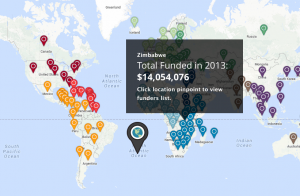 Mapping the philanthropic response to HIV/AIDS: Funders Concerned About AIDS (FCAA) has developed a new resource, Mapping the Philanthropic Response to HIV/AIDS, which is the first visual mapping of the field of HIV/AIDS philanthropy. This new searchable map offers a list of grantmakers and a total amount of private HIV/AIDS funding per country. Grantmakers can use this new resource to discover other organisations active in countries they fund in, to identify new partners to help leverage and strengthen their work, to build support for a new project or issue in an under-resourced country, and to inform the work and sustainability of their grantees. The map is free and available to the public.
Mapping the philanthropic response to HIV/AIDS: Funders Concerned About AIDS (FCAA) has developed a new resource, Mapping the Philanthropic Response to HIV/AIDS, which is the first visual mapping of the field of HIV/AIDS philanthropy. This new searchable map offers a list of grantmakers and a total amount of private HIV/AIDS funding per country. Grantmakers can use this new resource to discover other organisations active in countries they fund in, to identify new partners to help leverage and strengthen their work, to build support for a new project or issue in an under-resourced country, and to inform the work and sustainability of their grantees. The map is free and available to the public.
A welcome public row about donor effectiveness: Caroline Fiennes (Director of Giving Evidence, which encourages and enables effective giving based on sound evidence), has written for Alliance magazine about donor effectiveness. She refers to a recent instance in which an individual was criticised for giving $400 million to Harvard University, an institution with an endowment of $32.7 billion. Caroline writes “This is the first public ‘row’ I can remember about whether a particular gift is any good, and it’s about time. Donors are rarely (ever?) asked to explain their choice of organisation or what the donation might achieve, and never challenged on what that money could have achieved elsewhere.” She then refers to the effective altruism movement, which encourages people to give where they can make most difference, and where the opportunity cost is minimal. Read more here.
Immigration Strategies – New Resources: The Foundation Center’s Issue Lab has released a special collection of resources on ‘Immigration Strategies’. These resources look at the lessons that nonprofits, and the foundations that support them, are learning from their efforts to improve immigration policies and services. This collection of 62 resources includes evaluations, case studies, and lessons learned, which expose and explore the nuances of effective collaboration, the value of coordinated messaging, the bedrock of ongoing advocacy efforts, and the vital importance of long-term and flexible funding. Funders are encouraged to add to the collection and share with others. Read more here.
20 years of shamefully scarce funding for feminists and women’s rights movements: The United Nations Research Institute for Social Development has produced a ‘Think Piece Series’ entitled Let’s Talk about Women’s Rights: 20 Years after the Beijing Platform for Action. As part of this series, Lydia Alpízar Durán has written an article concerning the severe under-funding of the women’s rights movement and women’s rights organisations. She looks at the past 20 years and the lack of funding for this sector, explores how much funding is currently available for women’s rights organisations, examines the role of the financial crisis in cuts to funding, and highlights 7 crucial issues for funding to ensure women’s rights.
What can we learn from award-winning philanthropy? Philanthropy Impact, an online source of news and resources for funders, has published an article featuring the 17 winners of the 2015 Beacon Awards. The Awards are run by UK Community Foundations with support from J.P. Morgan, The Pears Foundation and City Bridge Trust, and their aim is to promote effective philanthropic giving through the creation of a nationally recognised awards scheme and a fellowship body of philanthropists to highlight best practice and innovation in philanthropy. Philanthropy Impact asked this year’s winners what advice they would give to others wanting to achieve their philanthropic missions. Ariadne member Suzanne Biegel is the winner of The Beacon Award for Impact Investment, and her advice to others is “To consider philanthropy and impact investing as all one part of a spectrum on which you can use your wealth, to take risks, and to think about what really matters to you”. Read more here.
Jobs and Tenders
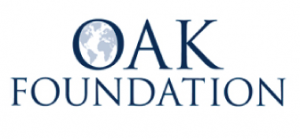 Programme Officer, Housing and Homelessness Programme – Oak Foundation: Oak Foundation wishes to appoint a Programme Officer to support the Director of its Housing and Homelessness Programme. The programme currently provides over 100 active grants in the UK and the US. The role involves managing the responsibilities of a grant portfolio, monitoring and evaluating grants and contributing to the strategic development of the programme. Candidates must have at least 7 years experience in a role involving systemic change, or the development and delivery of a range of services. Closing date for applications: 30th of June. Location: London. Read more here.
Programme Officer, Housing and Homelessness Programme – Oak Foundation: Oak Foundation wishes to appoint a Programme Officer to support the Director of its Housing and Homelessness Programme. The programme currently provides over 100 active grants in the UK and the US. The role involves managing the responsibilities of a grant portfolio, monitoring and evaluating grants and contributing to the strategic development of the programme. Candidates must have at least 7 years experience in a role involving systemic change, or the development and delivery of a range of services. Closing date for applications: 30th of June. Location: London. Read more here.
Head of Country Office, Morocco – The Heinrich Böll Foundation: The Heinrich Böll Foundation is looking for a new head of office for their Morocco country office. The position is initially limited until the 30th of November 2015, but with the option of extension. The role involves management of the foreign offices and representation of the Heinrich Böll Foundation in Morocco, as well as promoting political and technical dialogue between Morocco, the region and Germany/ the EU. Candidates must have very good knowledge of Morocco, for example its history, social conflicts, political landscape, and foreign relations. Candidates also need a very good knowledge of German, French and English, and expandable basic knowledge of Arabic. Closing date for applications: 25th of June. Read more here.
Program Assistant – OSIFE: The Think Tank Fund is a thematic program of the Open Society Foundations that supports independent policy research centres to strengthen democratic processes by identifying political, economic and social problems, researching them in a non-partisan and policy relevant way and providing policy alternatives that enrich public debate. The Think Tank Fund is currently recruiting for a program assistant, who will assist the program manager in charge of The Think Tank Fund’s initiatives, team members, and Think Tank Fund’s director with overall administrative and programmatic support. Closing date for applications: 22nd of June. Location: Budapest. Read more here.
Head of Insight and Analysis – The Wellcome Trust: The Wellcome Trust, a global charitable foundation dedicated to improving health, is seeking a leader for its new Insight & Analysis department. This new department, based within the Trust’s Strategy division, will lead on the provision of insight, analysis and intelligence to drive a joined-up perspective on the Wellcome Trust’s achievements, opportunities and potential. Candidates should ideally have a strong understanding of leading-edge thinking in strategic futures. A demonstrable track record of high-level insight and analysis work or strategic decision-making in the academic, public, private or third sector is highly desirable. Closing date for applications: 2nd of July. Location: London. Read more here.
Communications and Grants Assistant – Arcadia: Arcadia supports charities and scholarly institutions that preserve cultural heritage and the environment, and gives grants that promote open access to information. They are currently looking for a communications and grants assistant to be part of a small philanthropy team. The main responsibilities of the role are providing administrative support to Arcadia Fund and other family trusts, and general support with grant-making activities. Closing date for applications: 30th of June. Location: London. Read more here.
Public Meetings
ARUSHA
June 29th – July 3rd
African Grantmakers Network (AGN) 3rd Biennial Assembly: “Philanthropy in Africa 2015: People, Policy and Practice”: The previously postponed 2014 African Grantmakers Network (AGN) 3rd Biennial Assembly will now be held in Arusha, Tanzania on the 1st – 3rd July 2015, and will be hosted by the African Women’s Development Fund (AWDF) and The Foundation for Civil Society (FCS). Leading thinkers in philanthropy will join delegates in discussing the growth of African economies through philanthropy development. More details here.
BRUSSELS
November 9th – November 13th
EuroPhilantopics 2015 – Trust Matters – A lever to deliver better social justice outcomes: EuroPhilantopics is a dialogue between philanthropy actors and EU policy makers which aims to make clearer the potential synergies and collaborations between EU institutions and philanthropy. 10th of November 2015. Location: Bozar, Brussels. More details will appear here soon.
November 17th – November 18th
Save the date: European Environmental Funders Group 5th Annual meeting: The 5th annual meeting of this network will bring funders together with diverse stakeholders (NGOs, policy-makers, think-tanks, business, and others) to discuss systemic issues affecting the environmental agenda. This is an opportunity for networking, intelligence sharing, and strategic reflection on funding opportunities and start-ups. The event will take place on the 17th to the 18th of November, in Brussels. More details will follow soon here.
ISTANBUL
September 28th – October 2nd
Grantmakers East Forum 2015: This year is the 20th anniversary of the Grantmakers East Forum, and their annual meeting is due to take place from the 30th of September to the 2nd of October. The title for the event is ‘Creating equal opportunities: Overcoming divides’, and more details will appear here soon.
LONDON
June 8th – June 12th
Rhetoric and Reality: From Magna Carta to human rights today: The Magna Carta has come to stand for the rule of law, curbs on executive power and the freedom to enjoy basic liberties. When the Universal Declaration of Human Rights was adopted by the United Nations in 1948, it was heralded as ‘a Magna Carta for all human-kind’. Yet in the year in which this medieval Charter’s 800th birthday is widely celebrated, the future of the UK’s commitment to international human rights standards is in doubt. In A Magna Carta for all Humanity: homing in on human rights, Professor Francesca Klug invites us to consider what is distinctive about the ethic and practice of universal human rights. This event celebrates the launch of this publication, and brings together Francesca Klug and Shami Chakrabarti in a public conversation, chaired by Jane Gordon. Wednesday 10th of June 2015, 18.30-20:00 BST. Location: Sheikh Zayed Theatre, New Academic Building, LSE, London
June 15th – June 19th
The populist signal: Why politics and democracy need to change: The UK election of 2015 was fought against a backdrop of widespread disengagement with the mainstream parties, voter apathy and growing contempt for the practice of politics. Despite the apparent closeness of the race, voter turnout was only up 1% from 2010; once again, the biggest party was non-voters. Against this backdrop, Policy Network and the Barrow Cadbury Trust will launch a major report on understanding the political drivers of populism. Drawing on new polling, interviews and case studies, the report, authored by Claudia Chwalisz, details the extent to which large swathes of voters feel that politics does not represent or work for them, and considers how this undermines political stability and community cohesion. A presentation of the report will take place on the 17th of June 2015 at 08:45-10:15. Location: Royal Society, 6-9 Carlton House Terrace. More details here.
June 29th – July 4th
My Skype Family: My Skype Family is the UK premiere of a documentary play that explores the lengths people have been forced to go to in order to keep their families together as a result of these rules. The production showcases the true stories of families who have been torn apart by rules made by the UK government. In July 2012, the government radically changed the family migration rules, adding a new minimum income requirement for British nationals wishing to sponsor children, spouses or close family members from outside Europe. 43% of employees in the UK do not earn enough to meet this requirement, and so falling in love with a foreigner now comes with a hefty price tag. Saturday 4th of July. Location: Purcell Room at Queen Elizabeth Hall. More details here.
July 6th – July 10th
REGISTER: Early Action Funders Alliance Lunch: The Early Action Funders Alliance (EAFA) invites you to its next quarterly lunch which will feature a presentation by Nick Pearce, Director of the Institute for Public Policy Research (IPPR), on the implications of the General Election for early action work, followed by a discussion amongst those funders present. EAFA aims to create an active community of funders from different sectors who use, or would like to use, early action approaches in their work to support activity to pre-empt crises in people’s lives, taking inspiration from the metaphor that it is better to build fences at the top of the cliff than run ambulances at the bottom. Early Action points to ‘readiness’ rather than ‘prevention’- readiness for opportunities and challenges such as education, jobs, relationships, and old age. Attendees will hear an analysis of the new Government’s general receptiveness to the principles of Early Action, and what might be expected of it. July 8th 2015, 12:30 – 14:30. Location: Comic Relief, London. Register here.
MILAN
June 22nd – June 26th
European Learning Lab 2015 – Strategic communications practices for foundations: This year’s European Learning Lab looks at how to use the right communication tools to bring the right messages to the right people. The course aims to provide participants with a comprehensive set of tools and insights to develop communication strategies that reflect and support the mission, vision and strategies of their foundations, craft and execute strategic, creative and effective communications campaigns, successfully incorporate social media into communication programmes, and choose the most effective communication tools to comply with foundations’ transparency and accountability principles. 25th – 26th June. Location: Fondazione Cariplo, Via Daniele Manin 23, 20121 Milan, Italy. Read more here.
NEW YORK
July 13th – July 17th
IHRFG’s 2015 New York Conference and Pre-Conference Institute: The International Human Rights Funders Group annual New York institute and conference will take place this year from the 13th – 15th of July, at New York University’s School of Law, hosted by the Center for Human Rights and Global Justice. The theme for this year’s conference is ‘The Rights-Based Approach: The Right Approach?”. The pre-conference institute, ‘Detoxifying the Brand: How Framing Can Help Regain Public Support for Human Rights‘, will explore tools and strategies for communicating human rights to build a broader global constituency for human rights around the world. Registration is now open.
PARIS
July 6th – July 10th
International Research Conference of the European Research Network On Philanthropy – ‘Interdisciplinary Research on Philanthropy: Connecting the Dots’: This conference will gather scholars from various disciplines sharing a motivation to generate new knowledge about philanthropy by connecting the dots in between. The conference will serve as a platform to discuss current research developments and to foster new insights about philanthropy, and it also emphasises the need for rigour and relevance in philanthropy research. The conference is open to academic researchers and practitioners from the philanthropic sector from Europe and other countries, and is also open for non-presenters. 9th – 10th July. Location: ESSEC Business School, Paris. Learn more here.
ROME
November 9th – November 13th
Save the date: 2015 European Pro Bono Forum: The European Pro Bono Forum provides an international perspective on pro bono practice in Europe. By bringing together a growing and influential community of lawyers, individuals from the NGO sector, law professors and students that recognise the urgency of developing pro bono work, PILnet’s European Pro Bono Forum offers a setting where participants can explore how they can best collaborate to address critical social issues. 11th – 13th November 2015. Location: NH Collection Roma Vittorio Veneto, Rome. More details here.
THE HAGUE
June 22nd – June 26th
The (im)possibilities of remembering the war in Bosnia-Herzegovina: The 11th of July 2015 marks 20 years since the genocide of Srebrenica took place. A few months later the peace agreement was signed that ended the War in Bosnia-Herzegovina. Twenty years on, a new generation is growing up, but commemorating the war continues to be contested and challenging. Citizens and artists have come up with creative remembrance practices though, that try to move beyond conflicting stories. During this afternoon session Humanity House will look at several of such projects, and their possibilities and limitations. Friday 26th of June, 15:00-17:00. Location: Humanity House, The Hague.
Ariadne is supported by Adessium Foundation, The Atlantic Philanthropies, Barrow Cadbury Trust, Ford Foundation, Oak Foundation, Open Society Foundations, Sigrid Rausing Trust and Zennstrom Philanthropies.
Ariadne is also supported by voluntary contributions from its participants.





